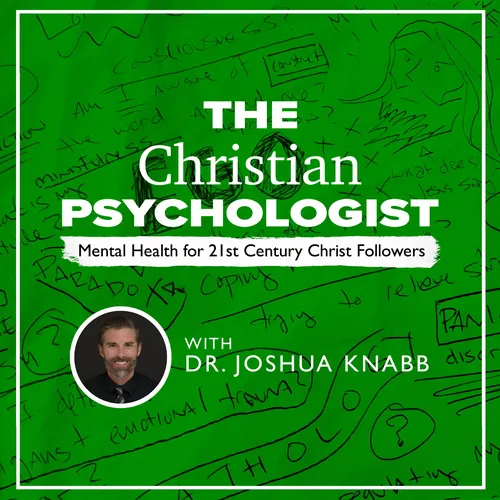Episode 9: Perfectionism
- Author
- Joshua Knabb
- Published
- Sun 23 Oct 2022
- Episode Link
- https://the-christian-psychologist-mental-health-for-21st-century-c.simplecast.com/episodes/episode-9-perfectionism-tQYLFdwh
References
Anderson, N., Miller, R., & Travis, P. (2003). When trying harder isn’t enough: Breaking the bondage of legalism. Harvest House Publishers.
Bieling, P., Israeli, A., & Antony, M. (2004). Is perfectionism good, bad, or both? Examining models of the perfectionism construct. Personality and Individual Differences, 36, 1373-1385.
Damian, L., Stoeber, J., Negru, O., & Baban, A. (2013). On the development of perfectionism in adolescence: Perceived parental expectations predict longitudinal increases in socially prescribed perfectionism. Personality and Individual Differences, 55, 688-693.
Egan, S., Wade, T., & Shafran, R. (2011). Perfectionism as a transdiagnostic process: A clinical review. Clinical Psychology Review, 31, 203-212.
Frost, R., Lahart, C., & Rosenblate, R. (1991). The development of perfectionism: A study of daughters and their parents. Cognitive Therapy Research, 15, 469–489.
Hughes, P. (2001). Grace. In W. Elwell (Ed.), Evangelical dictionary of theology (pp. 519-522). Baker Academic.
James, K., & Rimes, K. (2018). Mindfulness-based cognitive therapy versus pure cognitive behavioural self-help for perfectionism: A pilot randomized study. Mindfulness, 9, 801-814.
Kempis, T. (2015). The imitation of Christ: Classic devotions in today’s language. Worthy Inspired.
Knabb, J. (2018). The compassion-based workbook for Christian clients: Finding freedom from shame and negative self judgments. Routledge.
Knabb, J. (2021). Christian meditation in clinical practice: A four-step model and workbook for therapists and clients. InterVarsity Press.
Limburg, K., Watson, H., Hagger, M., & Egan, S. (2017). The relationship between perfectionism and psychopathology: A meta-analysis. Journal of Clinical Psychology, 73, 1301-1326.
Slaney, R., Rice, K., Mobley, M., Trippi, J., & Ashby, J. (2001). The revised Almost Perfect Scale. Measurement and Evaluation in Counseling and Development, 34, 130–145.
